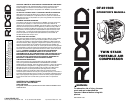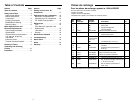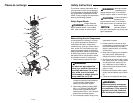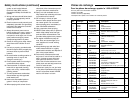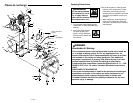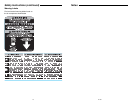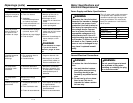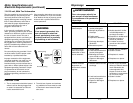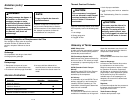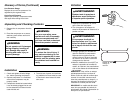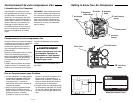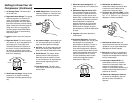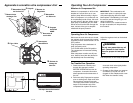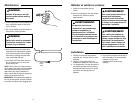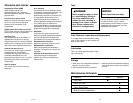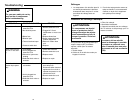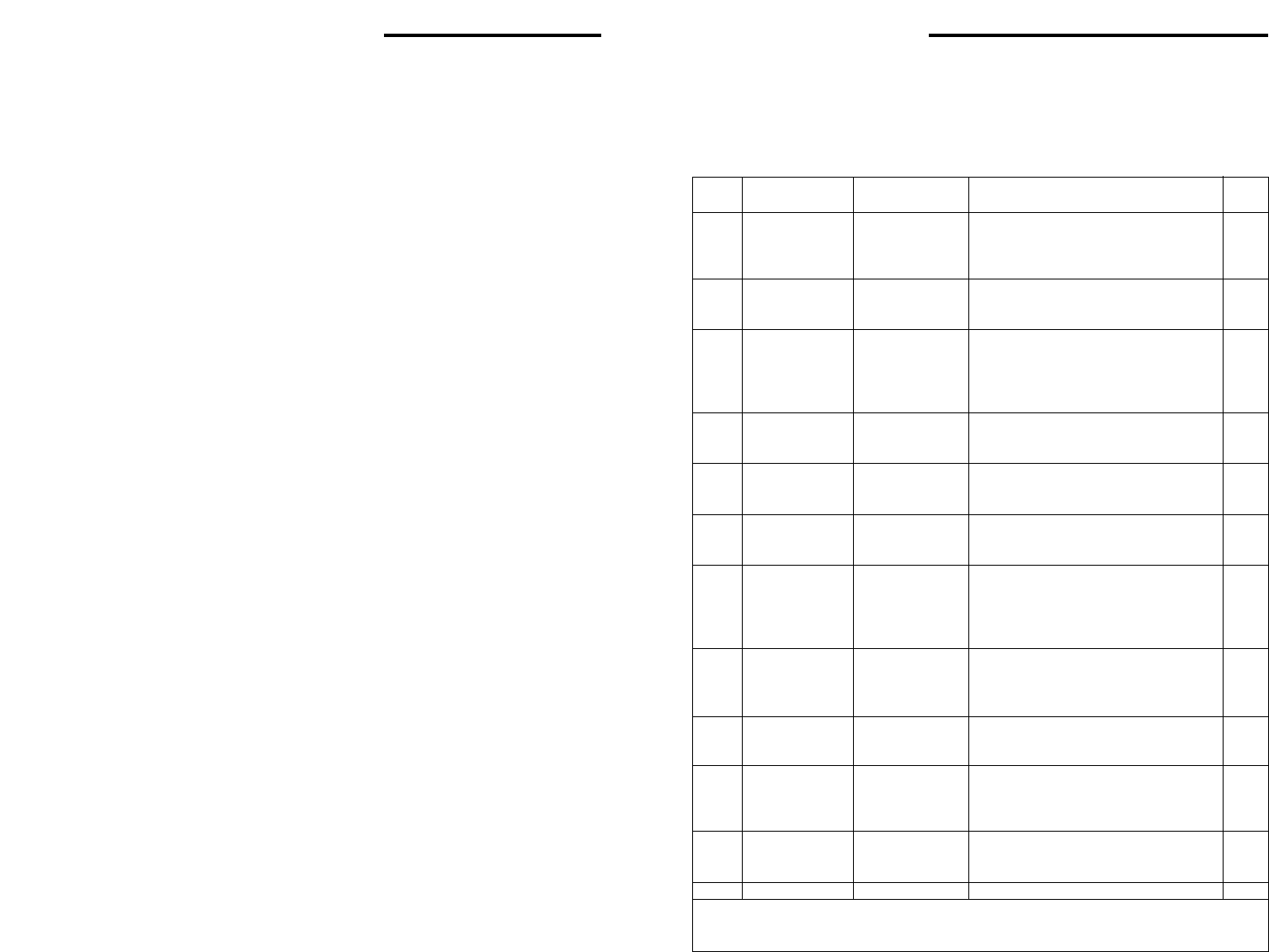
Pièces de rechange
No. No de Numéro
Ref. catalogue de pièce Description Qte
1 — WL373001AV
*
Montage pompe/moteur 1
2 20448 ST085700AV Filtre 1
3 20488 ST085701AV
*
Cartouche filtrante 1
4 17713 ST158000AV Embase de bouton 4
5 17718 WL003202AV Douille en caouct chouc (Arrière) 2
6 17723 WL003203AV Douille en caouct chouc [avant] 2
7 17728 CV222203AJ
*
Clapet 1
8 — WL029600AV ▲ Tuyau d’echappement
(écrous et viroles inclus) 1
9 — ▲ Écrou 1
10 — ▲ Virole 1
11 — ST188800AV Tube flexible - déchargeur 1
12 17753 ST209800AV Vis de décharge de tension 1
13 17758 CW209600AV Décharge de tension 1
14 17763 EC012600AV Cordon 1
15 17773 GA016709AV
*
Jauge du réservoir 1
16 17783
N/D
Vis de 1/4 po - 20 x 1/2 po 4
17 17793 WL024501AV
*
Ensemble rég. (inclut 15, 25 et 28) 1
18 17798 V-215106AV Soupape de sûreté 1138 kPa 1
19 17808 ST185600AV
*
Prise 1
20 17813 WL025900AV Arceau de sécurité 1
21 17838 WL025800AV Fixation de panneau de contrôle 1
22 17848 ST073276AV Vis de pied 4
23 17853 ST158300AV Pare chocs en caoutchouc mouté 4
24 — ST170100AV Tuyau de nylon - collecteur 1
25 17863 ST074415AV Vis autotaraudeuse de 1/4 po - 20 x 1/2 po 4
26 — AT170000AV Raccord de compression de 90
°
2
27 17873 HF203300AV
*
Raccord 2
28 17878 GA016705AV
*
Jauge de sortie 1
29 17883 CW210000AV Déchargeur 1
30 17888 ST022500AV Bouchon 1
31 17898 HF002401AV Raccord 1
32 17903 CW211700AV
*
Couvercle de manostat 1
33 17908 CW211300AJ
*
Manostat 1
34 17913 D-1403
*
Robinet de vidange du réservoir 1
35 17918 ST073612AV Bouchon 1
36 17923 AR052700OE Double réservoir 15,14 L 1
37 17928 ST129301AV Vis de couvercle de protection 1
38 17933 ST129302AV Vis de couvercle de protection 2
39 17938 WL012406AV Couvercle 1
40 17943 ST072224AV Raccord d’échappement 1
* Considérés des articles d’usure normale N/D = articles de quincaillerie standard
Fr 21
Pour les pièces de rechange, appeler le 1-800-4-RIDGID
S’il vous plaît fournir l’information suivante:
-Numéro du modèle
-Numéro de série (si applicable)
-Description de la pièce et son numéro sur la liste de pièces
codes, as well as the National
Electrical Code (NEC) and the
Occupational Safety and Health Act
(OSHA).
9. Wiring and fuses should follow electri-
cal codes, current capacity, and be
properly grounded.
10. Electric motors must be securely and
adequately grounded. See grounding
instructions and extension cord infor-
mation in this manual.
11. Always disconnect power source
before working on or near a motor, or
its connected load. If power discon-
nect point is out-of-sight, lock it in the
open position and tag to prevent
unexpected application of power.
12. Guard all moving parts; keep visitors
away. Never allow children in work
area.
13. Use only a properly grounded outlet
that will accept a three pronged plug,
and wear shoes to prevent shock
hazards.
14. Be careful when touching exterior of
operating motor; it may be hot
enough to cause injury.
15. Protect power cable from coming in
contact with sharp objects.
16. Clean electrical or electronic equip-
ment with an approved cleaning
agent, such as dry, nonflammable
cleaning solvent.
17. To avoid spontaneous combustion,
discard waste rags into approved
metal waste cans.
18. Never store flammable liquids or
gases in vicinity of compressor.
19. When spraying with solvent of toxic
chemicals, follow instructions provid-
ed by the chemical manufacturer.
20. Spray in a well ventilated area, to
keep fumes from collecting and caus-
ing health and fire hazards.
21. Do not spray in vicinity of open
flames or other places where a spark
can cause ignition. Do not smoke
when spraying paint, insecticides, or
other flammable substances.
22. Use a respirator when spraying.
23. NEVER reset safety valve or pressure
switch. Keep safety valve free from
paint and other accumulations. This
provides safety against over pressure.
24. Do regular maintenance; keep all
nuts, bolts, and screws tight, to be
sure equipment is in safe working
condition .
25. Keep cleaning rags and other flam-
mable waste materials in a tightly
closed metal container and dispose of
later in the proper fashion.
26. Drain tanks of moisture after each
day’s use. If unit will not be used for a
while, it is best to leave drain cock
open until such time as it is to be
used. This will allow moisture to com-
pletely drain out and help prevent cor-
rosion of inside of tank.
27. Inspect tank yearly for rust, pin holes
or any other imperfections that could
cause it to become unsafe. NEVER
weld or drill holes in air tank.
Safety Instructions (continued)
4



